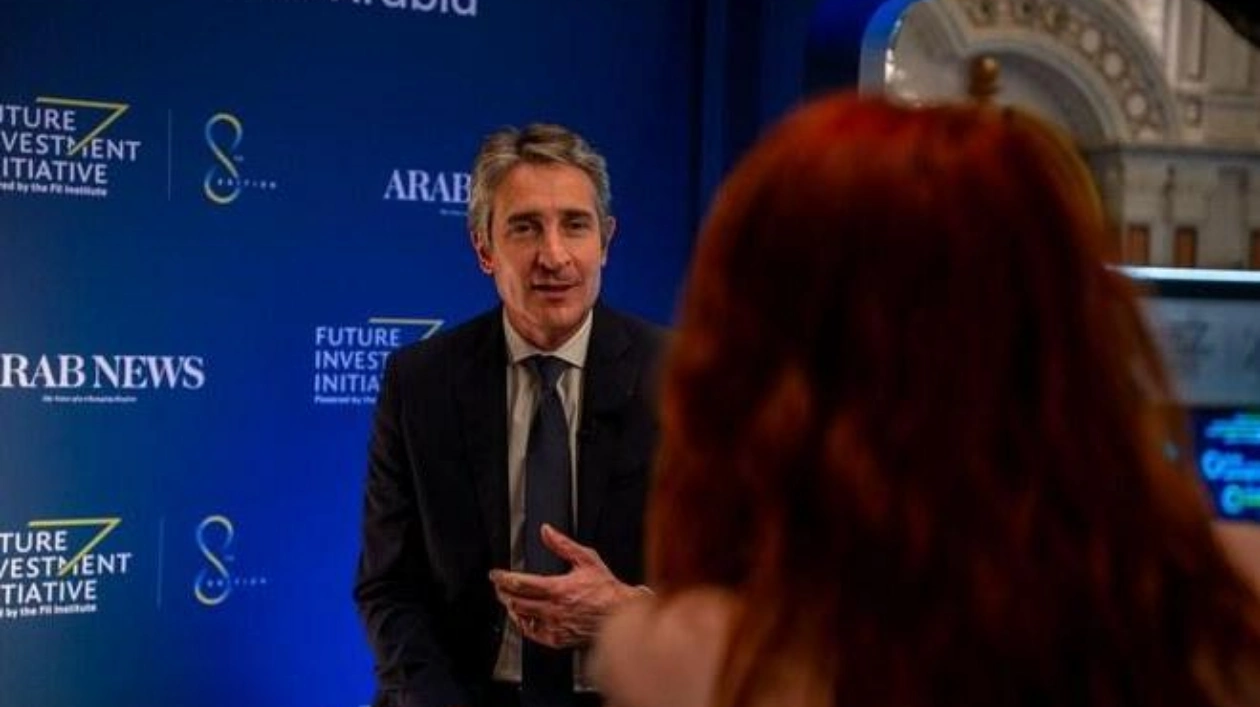RIYADH: Quantum-powered sensors and systems are poised to surpass artificial intelligence and play a crucial role in the aerospace industry, according to the CEO of Thales Group.
In an interview with Arab News at the eighth edition of the Future Investment Initiative in Riyadh, Patrice Caine—who also serves as chairman of the global aerospace systems company—emphasized that the quantum revolution is imminent.
He highlighted that the 'second quantum revolution' is likely to gain prominence in the coming years, potentially rivaling or even surpassing the influence of artificial intelligence.
'It's already gaining traction. People are increasingly discussing it,' he said. 'However, it's not yet as renowned as AI, but it will undoubtedly become so in the future.'
Caine clarified that Thales is concentrating on quantum sensors and communication rather than the more commonly recognized field of quantum computing.
He underscored that these areas hold the potential for substantial advancements, particularly in boosting the efficiency of sensors and decision-making systems within aerospace.
Thales aims to harness these quantum advancements to create next-generation solutions, reimagining operational capabilities in aerospace security and beyond.
Caine added that this technology is likely to be implemented on an industrial scale within the next decade.
'We are not far from achieving this. In fact, we already have proof of concept. We can already observe these types of applications in our labs. Now, the challenge is to industrialize these early prototypes,' he added, stressing the importance of identifying market demand alongside technological development.
Caine emphasized that, unlike incremental improvements, quantum technology could dramatically enhance system efficiency.
'It's, I would say, another approach to applying quantum properties to sensors to increase their efficiency by 100 times, which is monumental. It's revolutionary,' he said.
Caine noted that AI is 'the technology of the moment,' and the company currently employs nearly 600 experts working on algorithms, processes, tools, and methodologies related to the technology.
He further emphasized that the company utilizes symbolic AI, also known as model-based AI, for its clients, unlike the data-based technology prevalent in the public sector.
He further elaborated on the industrial implications of the technology, stating: 'In the short term, it (AI) will make our solutions, products, and systems increasingly premium.'
Caine added: 'So, there is a potential advantage and an economic or financial benefit to introducing products powered by AI. That's clearly the initial consequence.'
The CEO believes that mastering AI will become essential for maintaining competitiveness.
'Longer term, it may become a necessity, either you master AI or not. And if you do not master it, you will gradually lose ground to competitors,' he said.
Thales Group is a global technology leader specializing in advanced solutions for aerospace, defense, security, and digital identity. The company designs and manufactures systems for critical sectors, including air traffic management, avionics, cybersecurity, and AI.
Source link: https://www.arabnews.com






